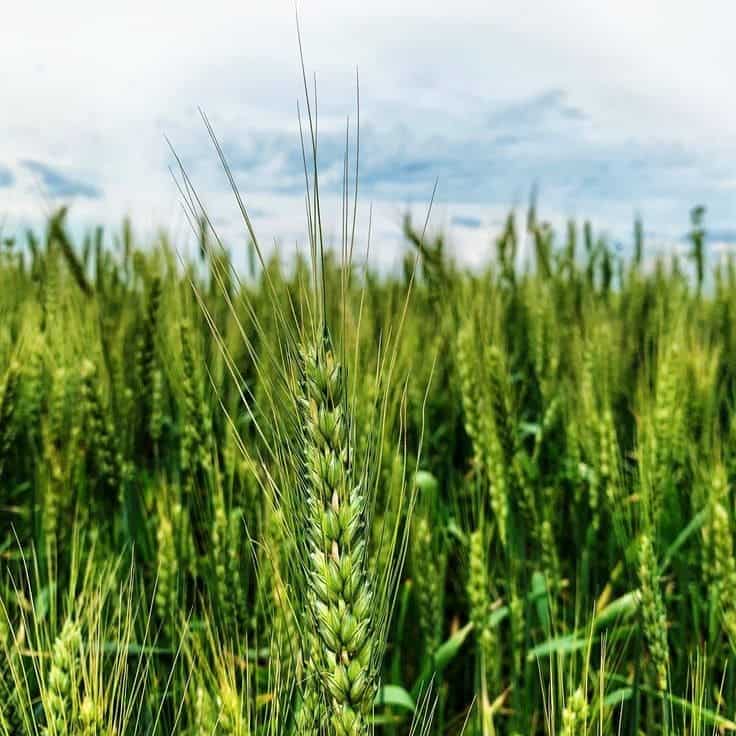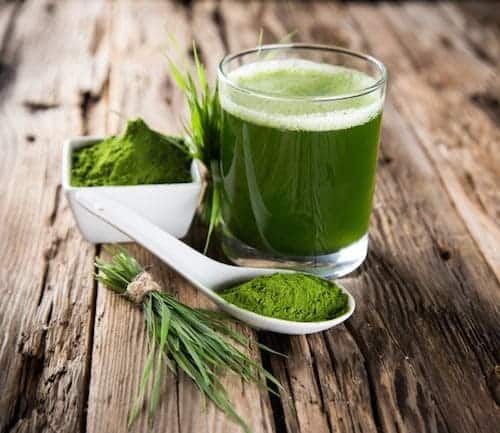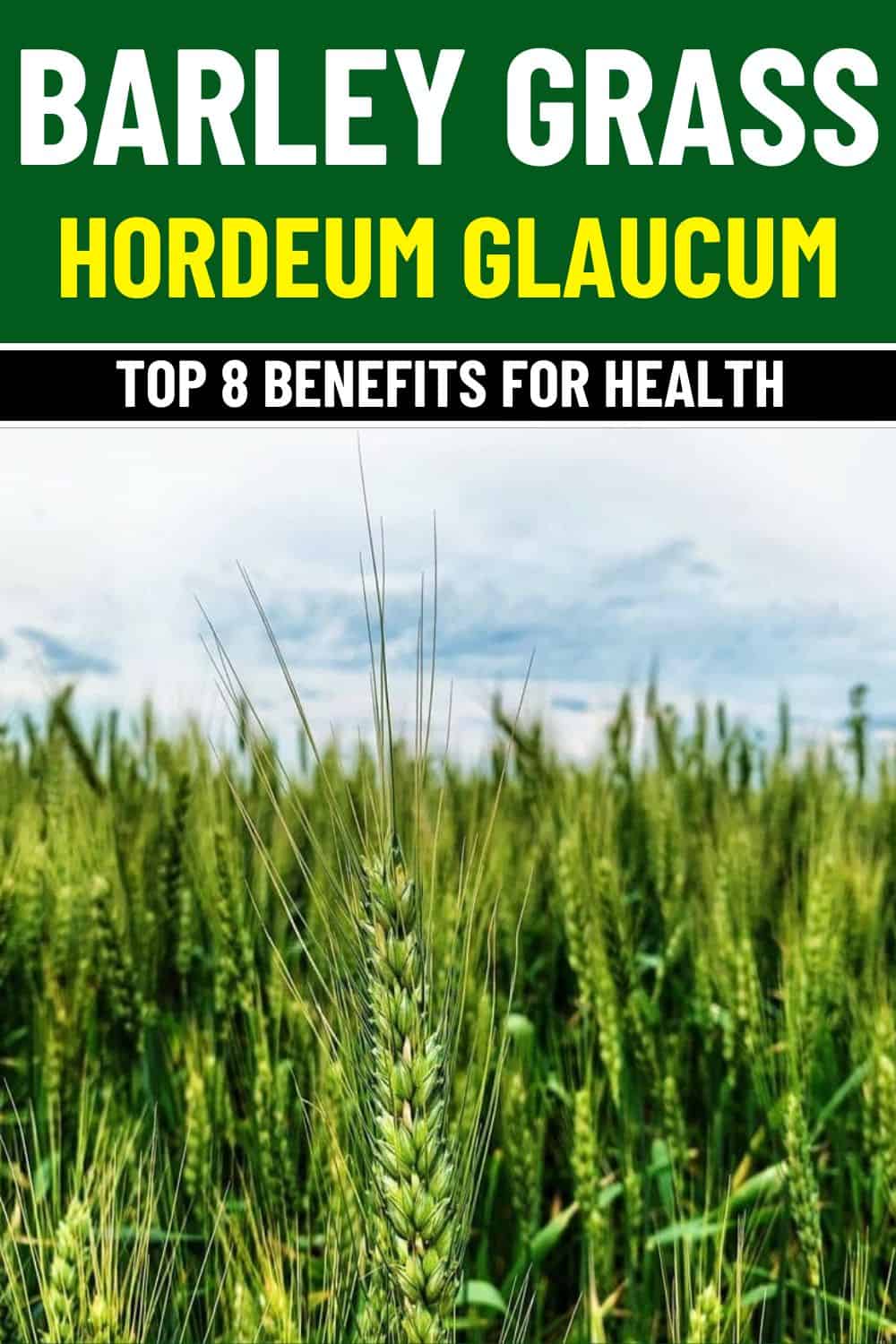Barley grass, derived from the young leaves of the barley plant (Hordeum vulgare), has been a nutritional powerhouse for centuries.
Originating in the Mediterranean, this superfood is packed with vitamins A, C, K, iron, calcium, and chlorophyll.
If you’re seeking a natural, holistic way to elevate your well-being from the inside out, it’s time to explore the incredible benefits that barley grass has to offer.
#1. Aids in Detoxification
Barley grass is rich in chlorophyll, a natural detoxifier that helps cleanse your liver and flush out toxins from your body. This detoxifying effect supports better organ function and overall health.
Additionally, its antioxidants, including superoxide dismutase and flavonoids, combat free radicals, protecting your cells from damage caused by pollution and unhealthy diets.

#2. Boosts Immunity
With vitamin C (7 mg per 100 grams) and iron, barley grass strengthens your immune system. Vitamin C stimulates white blood cell production, while iron enhances oxygen delivery to your tissues, improving overall defense mechanisms.
These nutrients help your body fend off infections, making barley grass a natural ally during flu seasons or times of stress.

#3. Improves Digestion
Barley grass contains 3.6 grams of fiber per 100 grams, aiding digestion by promoting smoother bowel movements and preventing constipation. Its fiber also nourishes gut-friendly bacteria, supporting a balanced microbiome.
The enzymes in barley grass, such as protease and amylase, help break down proteins and carbohydrates, ensuring better nutrient absorption.

#4. Supports Heart Health
Rich in potassium (363 mg per 100 grams) and low in sodium, barley grass helps regulate blood pressure by maintaining electrolyte balance. Potassium also supports heart muscle function and reduces the risk of cardiovascular diseases.
Its antioxidants, like flavonoids, further protect your heart by reducing inflammation and improving cholesterol levels.

#5. Promotes Healthy Skin
Barley grass is a skin-friendly food, thanks to its vitamin A (35 mcg per 100 grams) and chlorophyll content. Vitamin A promotes skin cell renewal, while chlorophyll soothes inflammation and protects against acne and other skin conditions.
Regular consumption of barley grass can give your skin a natural glow and protect it from environmental damage.

#6. Enhances Energy Levels
Packed with B vitamins, including B1 (thiamine) and B2 (riboflavin), barley grass boosts your energy naturally. These vitamins play a key role in converting food into energy, keeping you active throughout the day.
The natural sugars in barley grass provide a gentle energy lift without the crash that comes from processed sugars.

#7. Supports Bone Health
Barley grass is a rich source of calcium (37 mg per 100 grams) and magnesium (19 mg per 100 grams), both essential for maintaining strong bones. Calcium strengthens your bone structure, while magnesium improves calcium absorption.
For middle-aged and older adults, incorporating barley grass can help reduce the risk of osteoporosis and promote joint health.

#8. May Help Manage Weight
Low in calories and high in fiber, barley grass can help you feel full longer, reducing overeating. The fiber content regulates blood sugar levels, preventing spikes and crashes that lead to cravings.
Its nutrient density ensures you’re getting essential vitamins and minerals, even on a calorie-conscious diet.

How to Use
- Smoothies: You can mix barley grass powder into fruit smoothies for an easy, nutrient-packed breakfast. A tablespoon of powder blends well with bananas, berries, and almond milk.
- Soups and Broths: Add a spoonful of barley grass powder to hot soups or broths at the end of cooking to preserve nutrients while enriching the flavor.
- Barley Grass Tea: Steep barley grass powder or fresh leaves in hot water for 5-7 minutes. You should add a touch of honey or lemon for a calming and detoxifying tea.
- Baking: Mix a small amount of barley grass powder into baked goods like muffins or bread for an extra dose of vitamins without overpowering the flavor.
With its mild flavor and versatile applications, barley grass can seamlessly fit into a variety of dishes and beverages.

Cautions and Precautions
While barley grass is generally safe, those with gluten sensitivities or celiac disease should ensure they’re using a gluten-free variety, as barley can sometimes be cross-contaminated.
Consuming excessive amounts may lead to mild gastrointestinal issues, like bloating or diarrhea, due to its high fiber content. Start with small quantities and gradually increase to allow your body to adjust.
Pregnant and breastfeeding women should consult a healthcare provider before adding barley grass to their diet, as research on its effects during these stages is limited.
Disclaimer
This article is for informational purposes only and should not replace professional medical advice. Always consult a healthcare professional before making significant dietary changes or using supplements.







